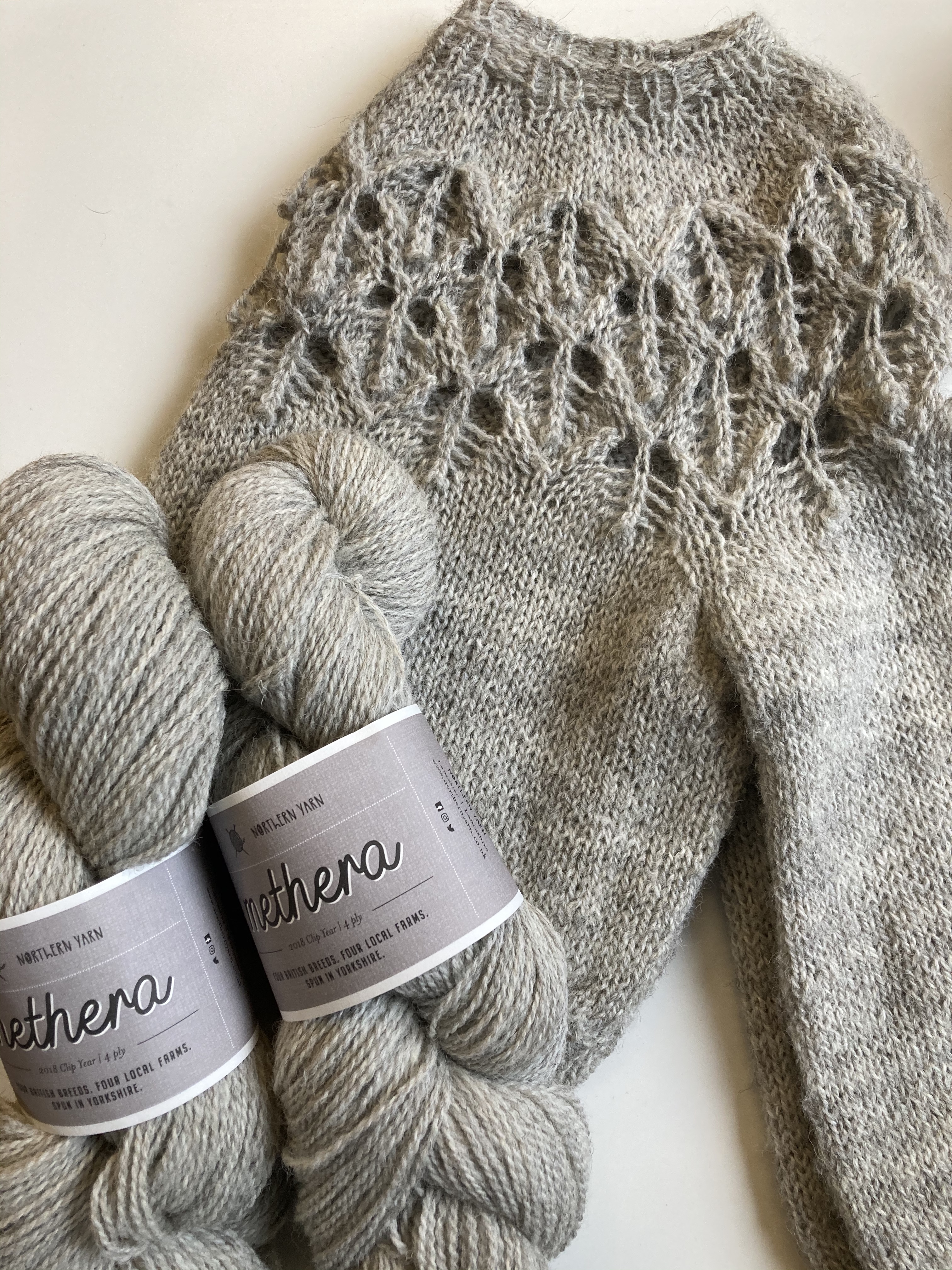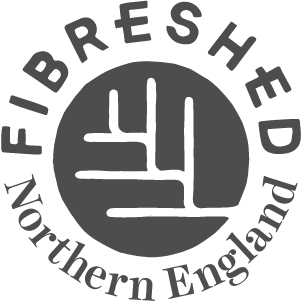I’d love to tell you a bit more about me and my wool shop. Firstly – you can find us in the heart of Lancaster and online at www.northernyarn.co.uk
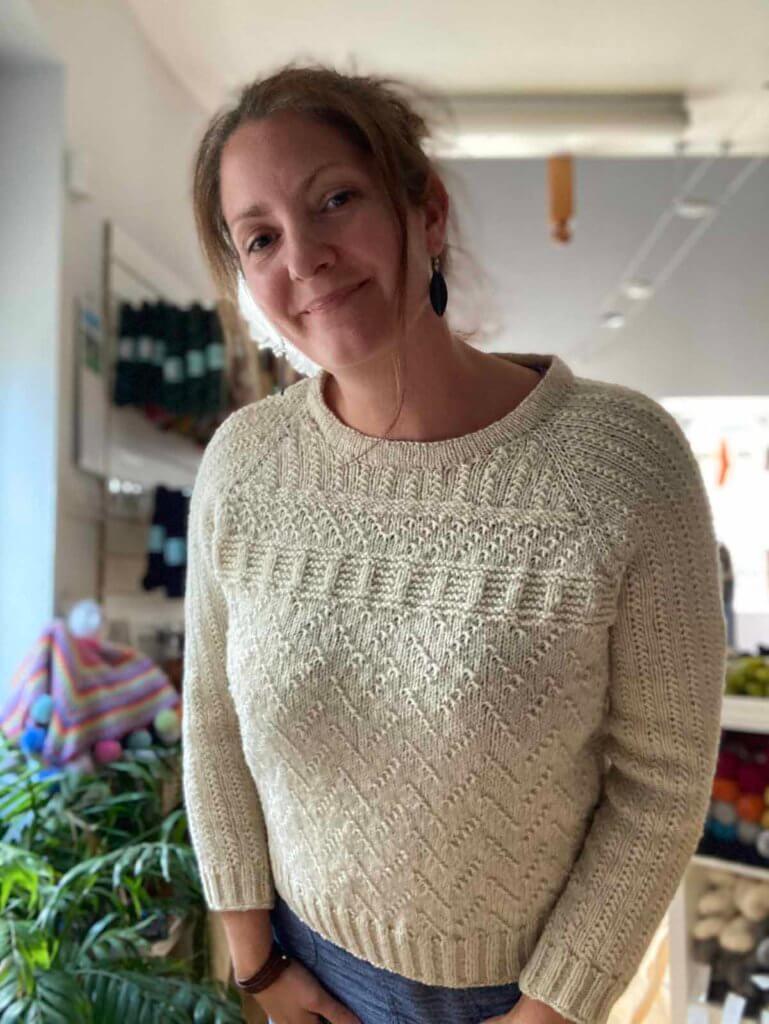
After relocating back to the North West after a long time in London I was struck by the countryside so close to town. Everywhere seemed so green and lush and there were so many sheep! We began meeting people and many of those lived and worked on farms with livestock, mostly sheep.
I learned that the local, stony ground near the fells at the beginning of the Trough of Bowland wasn’t really suited to arable farming. The stars were aligned for what happened next really. My grandma had taught me to knit as a child – and I loved everything about it. It kept my hands and mind busy, gave me a creative outlet and I loved the colours and textures at my fingertips!
I was looking for work now our youngest was starting nursery. Having worked in the public sector in London for 10 years I was ready for a new adventure and something that would be flexible around family life. Our local wool shop closed – and that was the push I needed to try my new venture – selling British wool, locally sourced where possible – promoting natural, sustainable fibres, grown in our community.
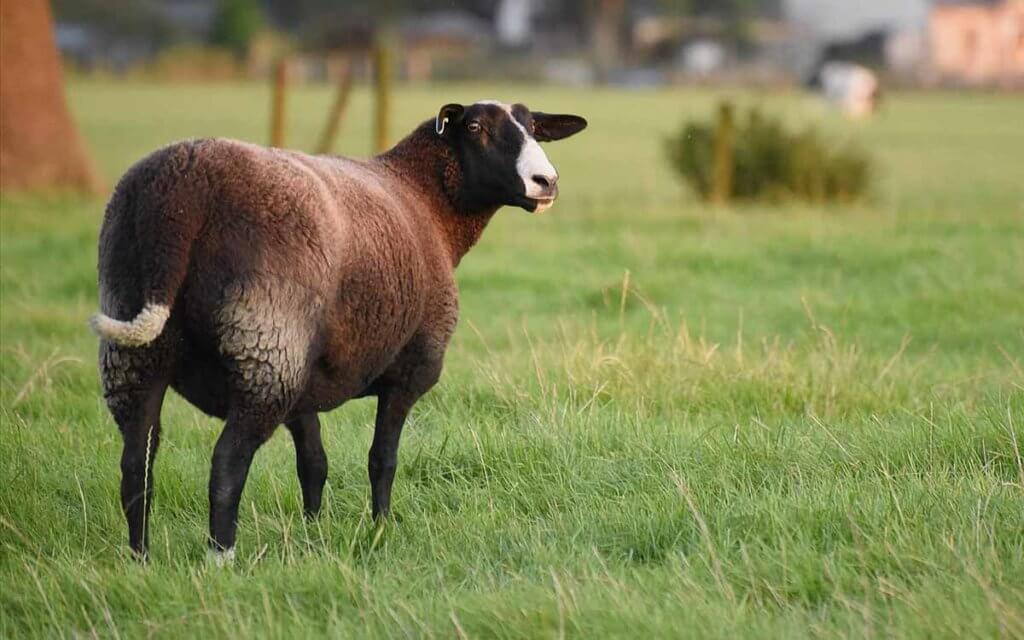
Which was easier said than done! But I was able to gather a selection of British yarns – and some rare breed single farm yarns and set up my stall on our local charter market, twice a week for 18 months! It was a brilliant but a hard time. I loved proving nay-sayers wrong who had told me I wouldn’t be able to sell pure wool in Lancaster. I met so many people who were already wool advocates and many more who were interested and wanted to switch to natural fibres, especially home-grown ones.
I had a lot to learn. I was no expert but wanted to explore with a grass roots, hands on approach. I was talking to shepherds at the school gates and found out more about breeds and fibre – one way to learn on the job, so to speak, was to have my own yarn line produced from local flocks.
So that’s what I did – and still do. The most enjoyable parts were visiting farms, meeting the shepherds and their sheep – learning more about farming and how the animals were looked after. After ringing almost all the mills in the UK I discovered there was a lot more to it than finding the right fleece. Many of the spinning mills wanted very large quantities, a lot more than a single flock could produce. Most would only take fleece that had been scoured and carded – and there are only a couple of scourers in the UK processing nearly everything. Understandably they wanted big quantities which wasn’t something I could manage with my first lot.
Then I talked to Paul Crookes at Halifax Spinning Mill – he was so knowledgeable and agreed to spin my 60 kilos of Poll Dorset fleece. I was able to go and meet Paul and he showed me around. There was so much to take in.
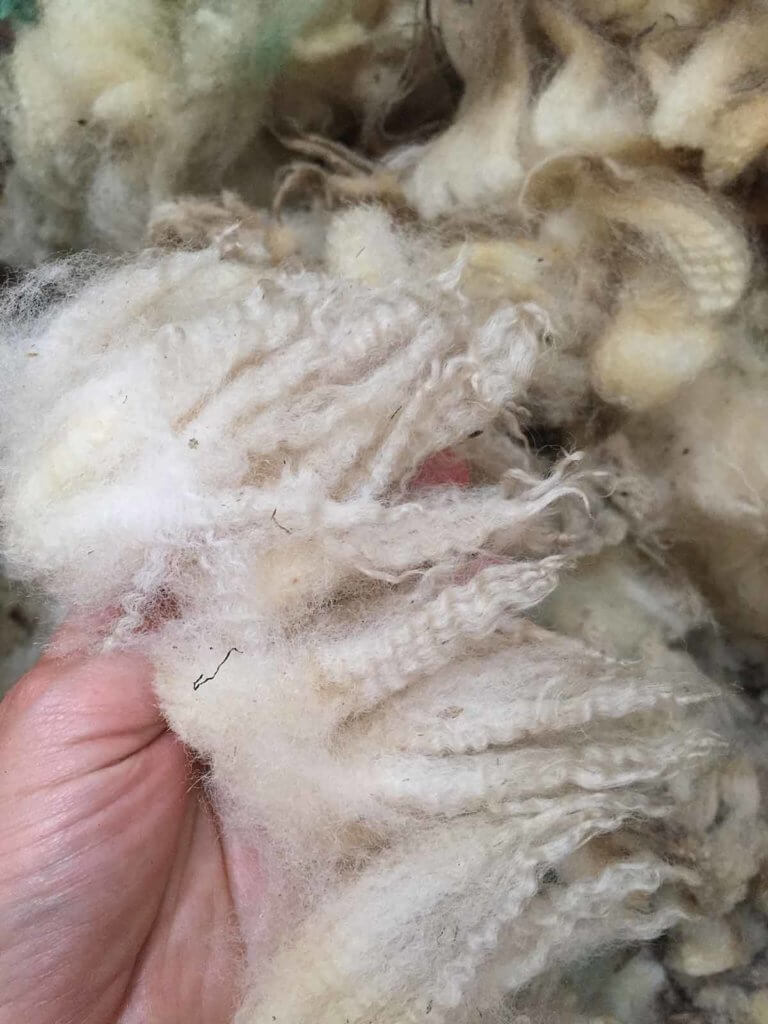
When the yarn arrived back with me and I opened the box it was nerve wracking and exciting! It was a big investment – I wanted to support farmers and try and raise the value of wool so paid double what the Wool Board was able to give.
The spinning process is rightfully costly, so much work goes into every skein. What if I didn’t like it though??! I knew the properties of the fleece I was having spun, the down wool is crisp and bouncy and we had this yarn woolen spun so it would be full and well, proper woolly!
I wasn’t disappointed at all – working with this wool was like knitting with my landscape. It created a fabric that was so warm with great stitch definition. Not only that, it totally connected me to the sheep and everyone who was part of the process. 100% traceable – I could see these sheep as I took the kids to school.
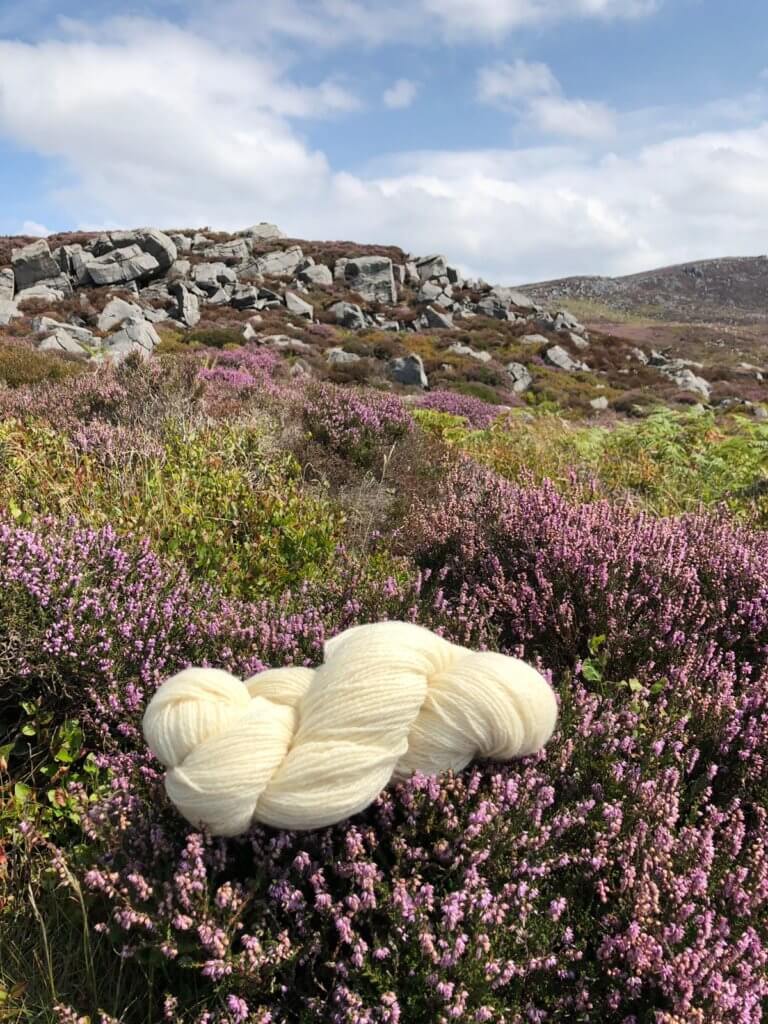
We’ve continued to have yarn produced, focusing on local farms, looking at native breeds such as the Lonk and more recently have combined breeds which has made getting those larger quantities whilst remaining with local Lancashire and Cumbrian farms, possible.
Methera is a blend of four breeds – Cheviot, BFL, Shetland and Zwartbles, worsted spun to a 4-ply weight. It makes an excellent, soft but strong yarn, delicate and woolly! The Zwartbles gives it a natural grey colour and a fantastic base for colour, giving it a lovely depth. Being able to make clothes from a fully traceable yarn grown and spun in the North West is something that makes me really happy and hopeful for the future.
I came across Fibershed on social media – based in the USA, I was excited to read about a movement that was doing something positive to help the environment and support an ethical workforce.
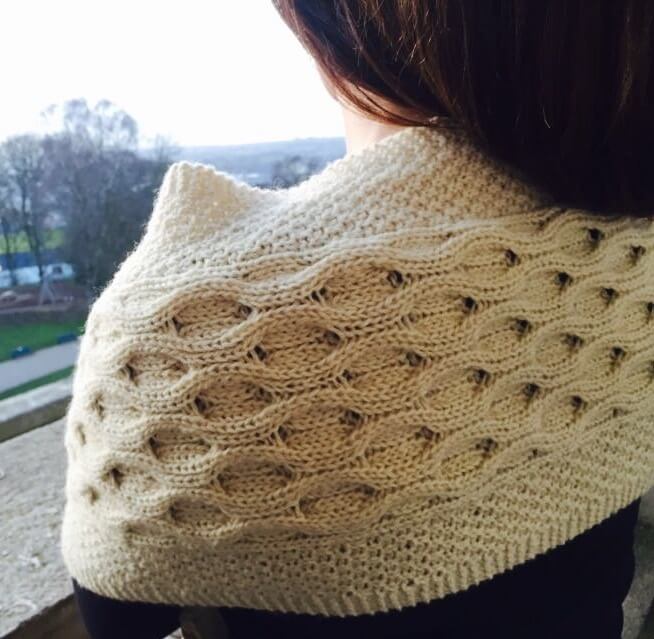
Being part of North West Fibreshed is fantastic – a brilliant community with the same goal of being able to source our textiles and fibre from our local landscape. There is so much to learn. I’m looking forward to developing my business and learning more about creating products that work alongside our environment.
